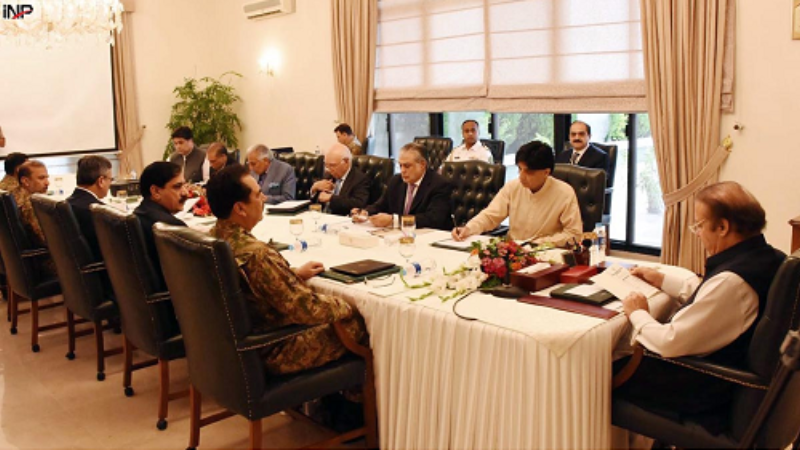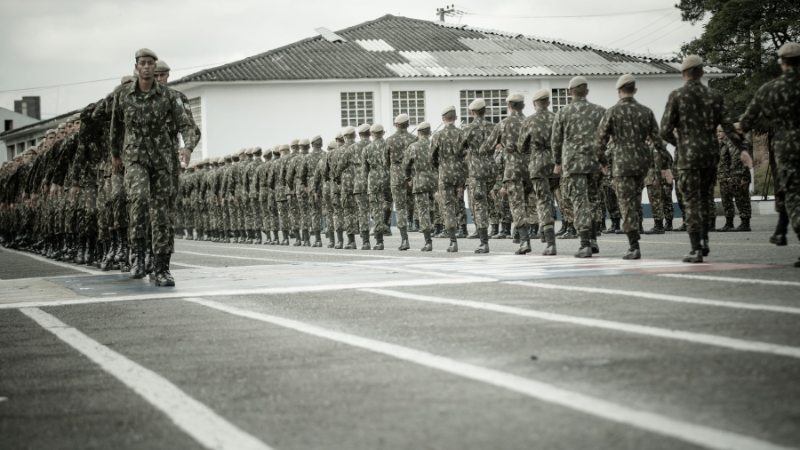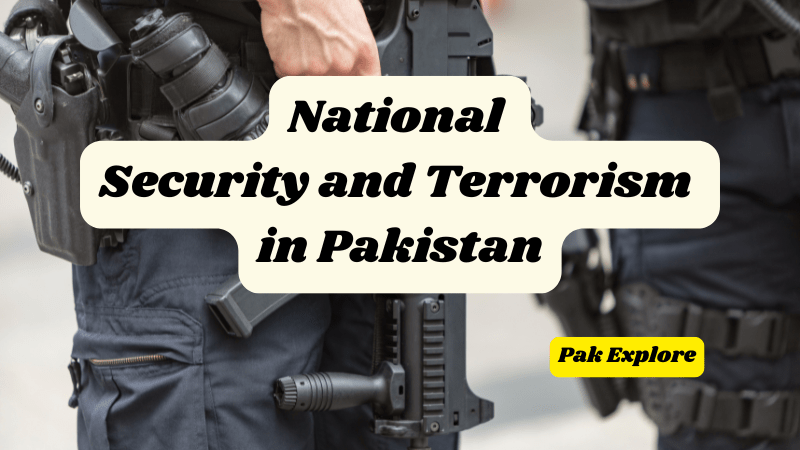10 Key Aspects of National Security and Terrorism in Pakistan
Terrorism and national security issues in Pakistan have always been important due to the country’s history and geographical location. Pakistan has been fighting terrorism for decades, and national security issues include the fight against terrorism, border disputes, internal disturbances, and relations with external powers.
To learn about Pakistan’s national security and the war on terrorism, check out this national anthem, which further highlights the feelings of patriotism.
Table of Contents
1.Background of Terrorism:
Soviet-Afghan War (1979-1989):
During this war, Pakistan supported the Afghan Mujahideen along with the US, which led to the emergence of extremist groups in the region. After the war, these groups strengthened their roots in Pakistan.
9/11 and the Global War on Terror:
After the attacks on the US in 2001, Pakistan sided with the US against terrorism and became a frontline state in the global war on terror. After that, the wave of terrorism increased in the country.

2.Main Factors of Terrorism:
Extremist groups:
There are several terrorist groups in Pakistan such as Tehreek-e-Taliban Pakistan (TTP), Lashkar-e-Jhangvi, Al-Qaeda, and local supporters of ISIS. These groups carried out acts of terrorism in different areas.
Sectarian violence:
Sectarian violence is also a form of terrorism in Pakistan, where incidents of violence between Shias and Sunnis continue to occur.
Insurgency in Balochistan:
The activities of separatist groups in Balochistan have also been a major challenge to national security.
Situation in Afghanistan:
Afghanistan’s unstable border with Pakistan and the Afghan Taliban’s issues also affect the growing terrorism situation in the country.
3.War on Terrorism:
Military Operations:
The Pakistan Army has conducted various major operations against terrorism, including Operation Zarb-i-Azb (2014) and Operation Radal al-Fasaad (2017). The aim of these operations was to eliminate terrorist hideouts and to rid the country of terrorism.
National Action Plan (NAP):
After the 2014 Peshawar school attack, the National Action Plan was introduced, with a 20-point agenda to end terrorism. The plan included measures such as monitoring madrassas, eradicating sectarianism, and banning hate speech.

Preventing the financing of terrorism:
Pakistan has also taken several measures to prevent the financing of terrorism, such as anti-money laundering laws and efforts to prevent funding from illegal sources.
4.Other Aspects of National Security:
Relations with India:
The dispute with India over the Kashmir issue and the tension between the two countries pose a major challenge to Pakistan’s national security. Border skirmishes with India and tensions over the Line of Control (LOC) are often at the top of national security topics.
Border issues with Afghanistan:
The Durand Line dispute with Afghanistan and the Taliban regime in Afghanistan affect Pakistan’s national security.
Internal Security:
Pakistan faces internal tensions between linguistic, religious and political groups. Linguistic clashes in Karachi, separatist movements in Balochistan, and the presence of militants in tribal areas are major internal security challenges.
5.National Security Institutions:
Pakistan Army:
The Pakistan Army plays a fundamental role in national security. From guarding the borders to counter-terrorism operations, the military is among the country’s most important institutions.
Inter-Services Intelligence (ISI):
ISI is Pakistan’s main intelligence agency that collects counter-terrorism intelligence and plays an important role in national security matters.

National Counter Terrorism Authority (NACTA):
This body works for national level policy formulation and planning against terrorism in Pakistan.
6.Regional and International Cooperation:
China:
Pakistan has close defense and economic ties with China. The China Pakistan Economic Corridor (CPEC) between the two countries is an important project that is also important in terms of national security.
United States:
Cooperation in the war against terrorism has been important in the relationship between Pakistan and the United States, but the relationship between the two countries has also seen ups and downs.
Afghan Taliban:
After the Taliban rule in Afghanistan, a major challenge for Pakistan is to stabilize relations with the Taliban and limit the presence of terrorist groups in Afghanistan.
7.Future Challenges:
New trends in terrorism:
Extremist groups are adopting new tactics as well as cyber attacks and efforts to spread extremist propaganda on social media.
Cyber Security:
Cyber attacks are a new challenge in the digital world, and Pakistan’s national security needs more measures to protect against them.
Strategic Defense Matters:
Pakistan’s nuclear weapons program is also an important aspect of national security, and it is important to maintain balance and dialogue with international powers.
8. Counter-Extremism Strategies:
Government and non-governmental initiatives to counter extremist ideologies.
Education reforms to promote peace and tolerance.
Efforts to deradicalize individuals associated with extremist groups.
9. Role of Media in National Security:
The influence of electronic and social media in shaping public perception.
How misinformation and propaganda can impact national security.
Steps taken to regulate media content against extremism
10. Economic Impact of Terrorism on Pakistan:
How terrorism has affected foreign investment and tourism.
The cost of military operations against terrorism.
Government policies to stabilize the economy and counter terrorism-related financial losses
Result:
The issues of terrorism and national security in Pakistan are complex and influenced by various internal and external factors. Addressing these issues requires a sustained military, political and diplomatic strategy.
——————–
you may also like:
2025: The Remarkable Development of Islamic Studies Institutions in Pakistan


